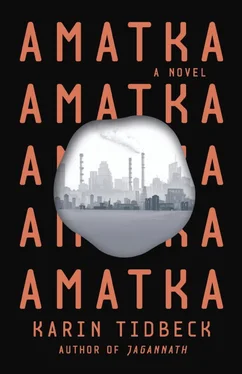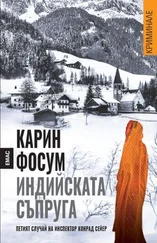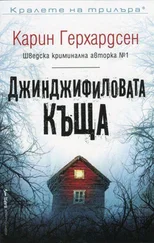Карин Тидбек - Amatka
Здесь есть возможность читать онлайн «Карин Тидбек - Amatka» весь текст электронной книги совершенно бесплатно (целиком полную версию без сокращений). В некоторых случаях можно слушать аудио, скачать через торрент в формате fb2 и присутствует краткое содержание. Город: New York, Год выпуска: 2017, ISBN: 2017, Издательство: Vintage Books, Жанр: Фантастика и фэнтези, на английском языке. Описание произведения, (предисловие) а так же отзывы посетителей доступны на портале библиотеки ЛибКат.
- Название:Amatka
- Автор:
- Издательство:Vintage Books
- Жанр:
- Год:2017
- Город:New York
- ISBN:978-1-101-97395-0
- Рейтинг книги:4 / 5. Голосов: 2
-
Избранное:Добавить в избранное
- Отзывы:
-
Ваша оценка:
- 80
- 1
- 2
- 3
- 4
- 5
Amatka: краткое содержание, описание и аннотация
Предлагаем к чтению аннотацию, описание, краткое содержание или предисловие (зависит от того, что написал сам автор книги «Amatka»). Если вы не нашли необходимую информацию о книге — напишите в комментариях, мы постараемся отыскать её.
Amatka — читать онлайн бесплатно полную книгу (весь текст) целиком
Ниже представлен текст книги, разбитый по страницам. Система сохранения места последней прочитанной страницы, позволяет с удобством читать онлайн бесплатно книгу «Amatka», без необходимости каждый раз заново искать на чём Вы остановились. Поставьте закладку, и сможете в любой момент перейти на страницу, на которой закончили чтение.
Интервал:
Закладка:
It was almost as though the shape of the cup in front of her was starting to melt, as though the table were suddenly sagging.
“Table,” Vanja mumbled reflexively. “Cup.”
“Exactly!” Ulla said. “You know how it works. Everyone knows how it works.”
“Why are you being like this?” There was a sour taste at the back of Vanja’s throat.
The sharp smile returned. “Because I think it’s funny. It’s so funny that you can be so aware of the truth, and still come here and try to sound as though your… specialists, or whatever they are, that you’re making something that doesn’t come from the same place as everything else. Tables and cups. Creams and clothes and… suitcases.” The last word was no more than a whisper.
“You said it yourself, everyone knows.” Vanja pushed her chair back.
Ulla watched her with unblinking eyes. “But have you never wondered?” she said. “If you just changed a consonant, or… misspoke. Just once.” She pointed at Vanja’s cup. “Knife,” she hissed.
The word stabbed at Vanja’s ears. She couldn’t look away from the cup. It kept its shape.
Ulla laughed. “Look how scared you are!”
“I could… I could report you.” Vanja got to her feet and moved away from the cup.
“Go ahead. Don’t just stand there like an idiot. Go and make your report.” Ulla reached for Vanja’s cup and raised it to her lips. “But I don’t think you will.”
“Why not?”
Ulla looked at Vanja over the rim of her cup. “Because I think that someone who lets two of her things dissolve over the course of just one week… might not be too happy with the order of things, if you know what I mean.” She slurped at her wine. “Besides, didn’t you hear? I’m old and confused.”
Vanja spent the afternoon in her room, wrapped in a duvet at her desk. All she could see through the window were roofs and the curves of the plant houses beyond. About Plant House 7 lay opened in front of her, full of comforting descriptions of the world, more and more soothing every time she read them. And yet Ulla’s words wouldn’t leave her alone. Someone who lets two of her things dissolve over the course of just one week might not be too happy with the order of things. Neither was Ulla, it seemed. And if one were to judge from that hymn and handwritten poetry, nor was Berols’ Anna. There was more to her than the plant house poems and the simple epitaph in the history book. Ulla knew something. She wanted something, too. The question was what.
FOURDAY
“Distillate Number One, forty-six volume percent alcohol. Made from turnips,” Vanja read out loud.
“Amatka’s most popular alcoholic beverage, after Distillate Number Four,” Nina said. “Average consumption three point seventy-five liters per person per year.”
“How do you know?”
“Because I have patients with cirrhosis. There’s a lot of cirrhosis going around.”
“In Essre, it’s two and a half liters,” Vanja said.
“And how do you know that?”
“I wrote a pamphlet about temperance.” Vanja held out her cup.
Nina chortled and gave her a refill. It was the afternoon. It had been about an hour since Nina came home and set the bottle on the table with a deep thud: “I have tomorrow off. Let’s drink.”
And that was that. Nina made strong coffee and poured enough distillate in the cups that the rising steam pricked Vanja’s nostrils. The liquor was harsher than in Essre and spread an acrid warmth through her chest. Nina was rosy cheeked and told stories about patients with weird injuries.
Vanja’s shoulders were slowly lowering. She had no funny stories to tell, but she enjoyed listening to Nina.
“It’s great seeing you laugh,” Nina said.
Vanja flushed. “What, don’t I normally?”
Nina shook her head. “No. And that’s a shame, because your whole face lights up. You’re so serious all the time, all worry lines.”
Vanja scraped at the bottle’s label with her thumbnail. “Maybe.”
Nina reached out and stopped her fidgeting. “Hey. What happened to you?”
“What do you mean, what happened to me?”
“You know, when we were at the clinic. Down at the fert unit.”
“Oh. That.”
“Do you want to talk about it?”
“There’s not much to say.”
Nina took the bottle and mixed them a new batch of coffee and distillate. “It happened to me, too,” she said. “Before I had Tora. Ivar and I had been inseminating at home, you know, with one of those baster things…”
“Inseminating?” Vanja said. “I thought you were…”
“What? No, no.” Nina laughed. “Haven’t you ever wondered why we have separate rooms?”
“I thought it was so there would be fewer empty rooms.”
Nina laughed again and shook her head. “No, no, no. See, we’re best friends since the children’s house. We’ve always lived together. It was just more practical to make a couple of children together, instead of standing in line at the clinic or trying to pick someone up at the leisure center.”
“I see.” Vanja started picking at the bottle label again.
“Anyway… we’d been trying for a good while with that syringe. And then I thought it finally worked. But I had a miscarriage more or less straight away. It was horrible.”
“But why?” Vanja said quietly. “Why was it horrible?”
“Because I’d been hoping, you know? And because I wanted to have children, and, well, contribute. Do my part for the commune. According to my ability, right?” Nina shrugged. “But then Tora and Ida came. I guess I’m trying to say that things might go better next time.”
“There is no next time,” Vanja said. She pinched a corner of the label between her thumb and forefinger and tugged at it. “They’ve given up. It didn’t work.”
Nina sighed. “I’m so very sorry to hear that.”
Vanja tore the corner off and rolled it between her fingers. She downed her drink. “But that’s not why.”
“Then why?” Nina tilted her head.
“I mean. What if one doesn’t want to.” The words seemed to have a will of their own. “If one doesn’t want to have children. One waits, and sort of hopes that it doesn’t have to happen. And then one turns twenty-five, and the questions start coming, and they put you in a room with a counselor who explains that it’s one’s communal duty, and finally one gives in, one goes to the fert unit and shakes hands with some pitiful man who has to masturbate into a cup so the doctors have something to impregnate one with, and one resigns and puts one’s feet in the stirrups because one has. No. Choice.” She was out of words. She rested her face in her hands.
Nina got up from her chair and sat down next to Vanja. She pulled her close and held her without speaking.
After a while, Vanja straightened up. She wiped her face with her shirtsleeves.
Nina put a hand on Vanja’s knee. “I’m sorry you’re in pain, Vanja. I really am. But both you and I do know why everything is like it is. It’s so that we can survive.”
Vanja stood up. The room seemed to tilt sideways ever so slightly. “I’m going out.”
She went up to her room and stuffed two blankets into her satchel. She looked into the kitchen on her way out. Nina sat with her chin in her hand. She was topping off her cup again.
The raw lake air was refreshing, even though everything still felt remote. Vanja walked north along the beach. Tundra, shingles, grass. She came to a spit of land where a group of boulders offered shelter from the wind and a place to sit. She spread out a blanket and sat down with her back to one of the larger rocks. Dusk was falling. Slow waves lapped against the beach; the rush of water on stone was unfamiliar and calming at the same time. Her eyes felt crusty from tears and alcohol. Vanja tied her earflaps under her chin, leaned her head back against the rock, and closed her eyes.
Читать дальшеИнтервал:
Закладка:
Похожие книги на «Amatka»
Представляем Вашему вниманию похожие книги на «Amatka» списком для выбора. Мы отобрали схожую по названию и смыслу литературу в надежде предоставить читателям больше вариантов отыскать новые, интересные, ещё непрочитанные произведения.
Обсуждение, отзывы о книге «Amatka» и просто собственные мнения читателей. Оставьте ваши комментарии, напишите, что Вы думаете о произведении, его смысле или главных героях. Укажите что конкретно понравилось, а что нет, и почему Вы так считаете.












![Карин Тидбек - Аматка [ЛП]](/books/438406/karin-tidbek-amatka-lp-thumb.webp)